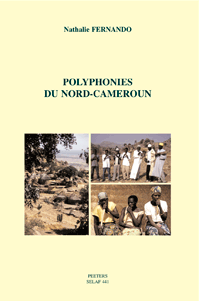Comparative Approach – Experimentation – Interdisciplinarity
The MCAM (Comparative Musicology and Anthropology of Music) laboratory is a member of the OICRM. One uniting factor for all of the MCAM researchers is that of FIELDWORK, which they consider to be the laboratory, the real source for elaborating, documenting and analysing their five research axes (see Research at MCAM). As the name of the laboratory states, the researchers centralize their work around a comparative approach, keeping an anthropological perspective that gathers them together. In this same spirit but in a more indirect way, the lab name renders homage to the well-known book edited by Bruno Nettl and Philip V. Bohlman. This work broached many problematics that continue to be relevant today and examined an ensemble of musicological practices.
Comparative Approach
This type of approach is thus one of the characteristic traits of the group, and is directly linked to the anthropological endeavour to which we are committed. Due to the natural evolution of ethnomusicology as a discipline, the concept of compared musicology, which is suggested in the name of the lab, is somewhat different to the one that gave birth to ethnomusicological studies at the beginning of the twentieth century. After several decades this comparative approach has re-emerged in order to give a new thrust to ehtnomusicological and musicological research in general. The comparative approach used by the lab members can be carried out at a local level between communities that -although coexisting inside a given society- define themselves as being different from one another, between different populations that come from the same geo-cultural areas and hence share a common history, or even between distant populations that reveal similarities in certain aspects of their musical traditions. It should be noted that through this process of comparison, both oral and written musical traditions are equally valid as objects of study, and thus all kinds of music are considered as belonging to the same plan of symbolic human abilities. Above all, it is important for researchers to understand how music is conceived, executed and perceived not only in any given society, but also beyond cultural barriers and the old dichotomy SAVANT/popular.
Experimentation
Through the analysis of the musical language and its place inside a community, this team of researchers is interested in implicit and un-verbalized musical knowledge. In certain communities, the tradition bearers express and explain a music theory through a discourse based on the musical object. In others, it is only accessible through a metalanguage of which the researcher must understand the meaning. And yet in many others, the relation to music, the definition of the musical experience, and the practical application of the concepts and techniques that rule the conception, execution and reception of musical forms can barely be understood by means of an oral language. It is at this point that an experimental approach that goes beyond the interactive inquiry proves useful. Experimentation places the musicians in the center of the discovery process, giving them the possibility to communicate about their music while researchers are given the means of understanding the most culturally pertinent aspects of music.
Interdisciplinarity and what ethnomusicology can offer other disciplines
The methodological approaches of the laboratory members lead to a cooperation between the different disciplines that study human qualities and abilities, rendering interdisciplinarity a common practice and an essential questioning. Although experimenting requires many of the techniques of neuropsychology of music, this discipline is not the only one to develop the understanding of the musical human being. Linguistics, history, anthropology and all its sub-disciplines, archaeology and genetics are equally relevant for this task. The analysis and the comparative perspective of the musical act as well as the definition of the musical human being, beyond the numerous and diverse traditions to which it may belong, requires us to gather, analyse and to register the data, trying to embrace in one single idea the methodological and conceptual paradigms that have long been considered antinomic, such as the intelligible and the emotional, the natural and the cultural, the synchronic and the diachronic.
On the other hand, it is obvious that the study of music and the abilities required for performing, understanding and learning it in each one of the cultures studied by this team of researchers is a threshold to the knowledge about these same cultures and the people who identify with them. Music is, in fact, omnipresent and organically bound with the other realms of culture. This is why ethnomusicology offers an essential contribution to social and pure sciences in the understanding of man and the human. Interdisciplinarity is also considered as a major contribution of ethnomusicology to other fields of research.




